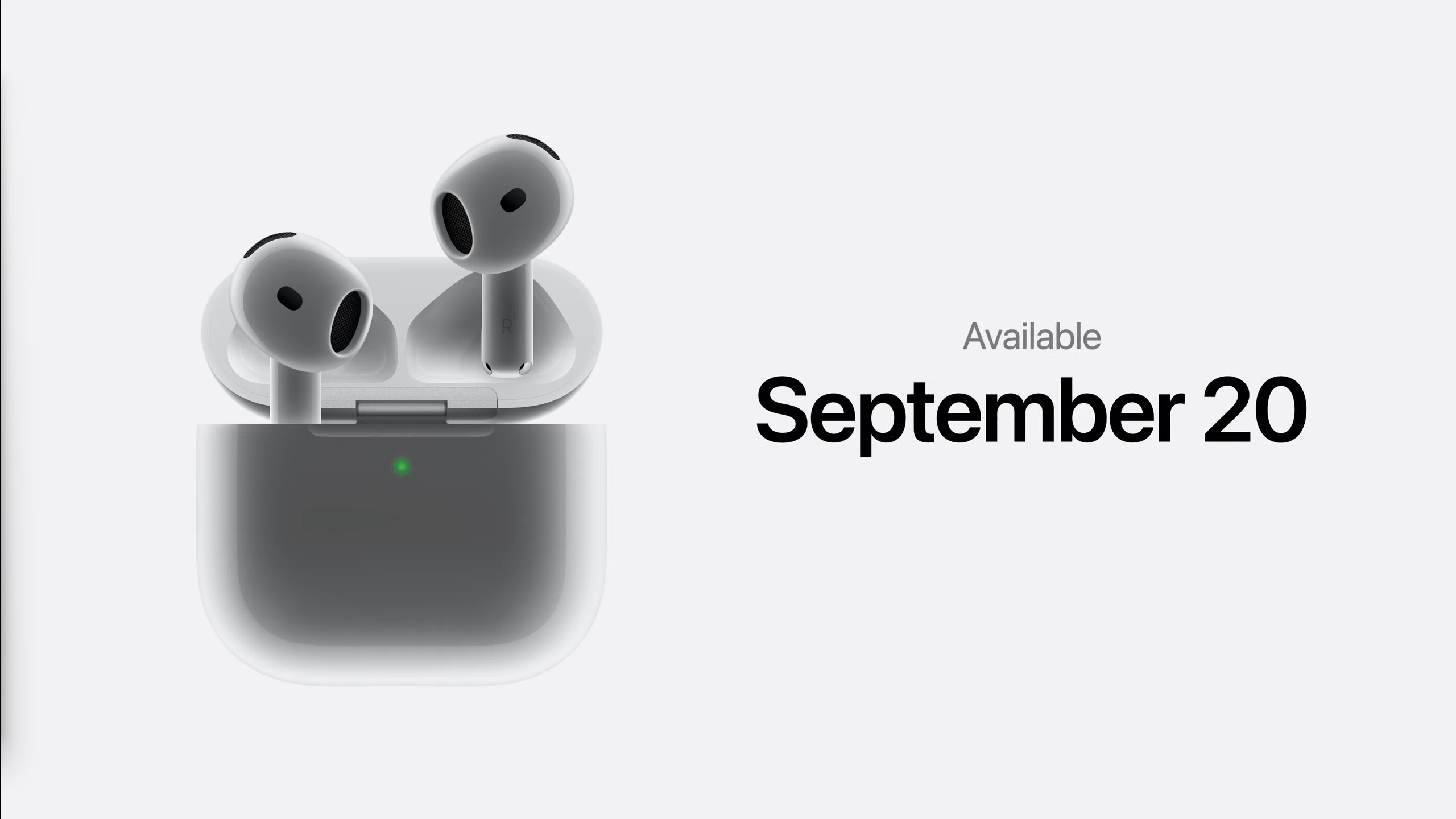
AirPods 4 felt due (in fact, they felt overdue, didn't they?) after well over two years with the Apple AirPods 3 around – and the huge Apple event tonight (aka the September 9 "It's Glowtime" shindig, kicking off at 10am PT/1pm ET/6pm BST – follow our iPhone 16 event live-blog for the recap) did not disappoint!
Alongside the new glowing, squish-your-phone Siri experience you'll soon get with phones that support Apple Intelligence, the AirPods 4 arrived – in fact, two options arrived!
While the AirPods Pro 2 still rank highly in our list of the best earbuds, (and we were casually hoping for the AirPods Pro 3 too, on September 9, but they didn't show) the AirPods 3 had a tougher time being seen and noticed. But we doubt the new AirPods 4 will. Why? There's two of them, that's why – and it's the first time that noise cancellation has been made available in non-Pro AirPods.
Read on for official pricing, launch date information, perks and preorders for AirPods 4.
Apple AirPods 4 release date and price
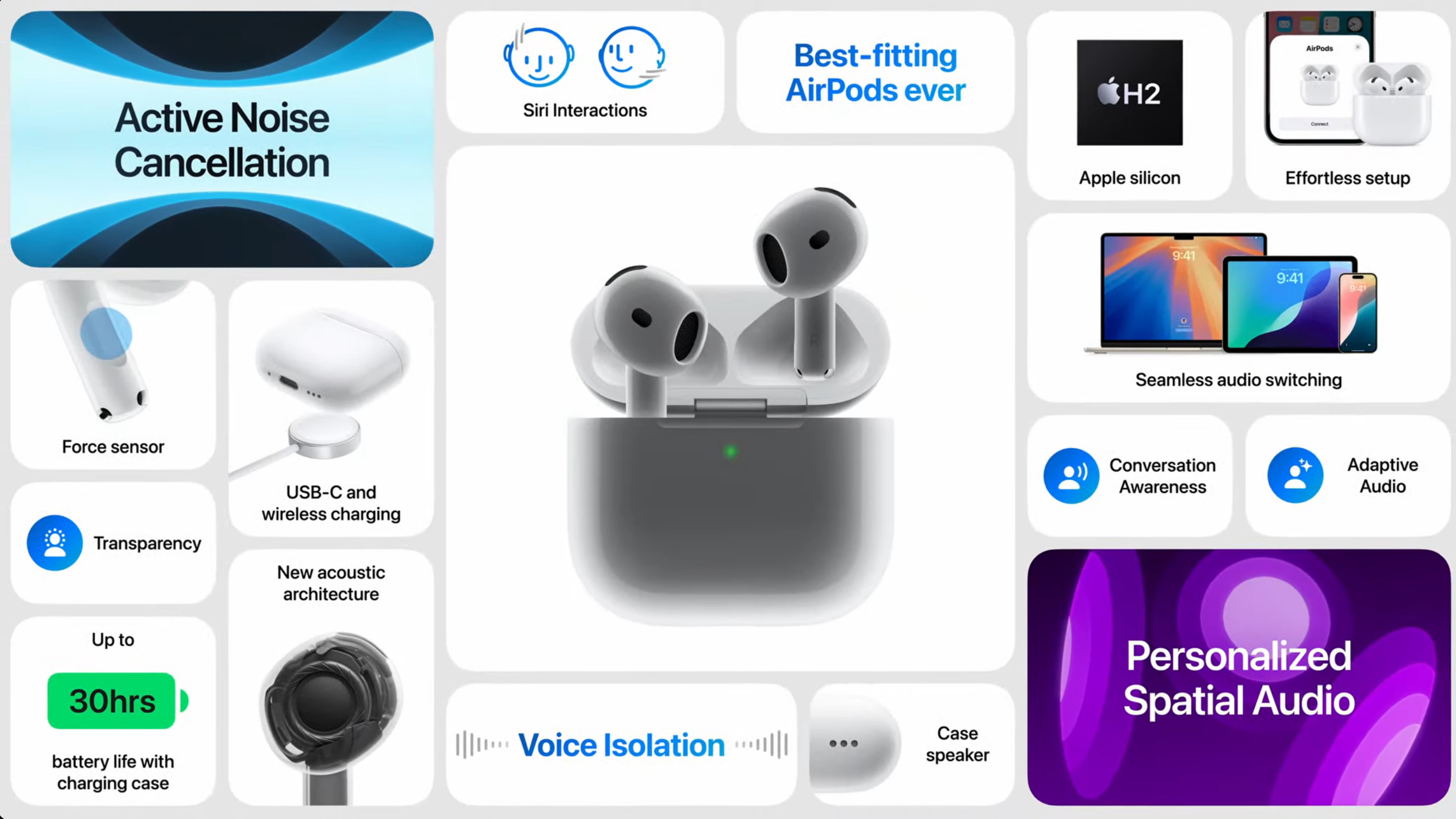
You won't be shocked to learn that while AirPods 4 will likely land in our best noise cancelling earbuds guide soon, a set of budget wireless earbuds they aren't. Not quite, anyway.
That said, they're not ridiculously pricey either, at $179 for the active noise cancelling set (so probably £169 / AU$279) and $129 for the entry-level AirPods 4.
Launch date? September 20 – yes, soon!
For clarity, the AirPods 3 launched on October 26, 2021, priced at $179 / £169 / AU$279. It’s rare for Apple to reduce the price of a like-for-like upgrade, so this is a welcome price.
Apple AirPods 4: Design and features
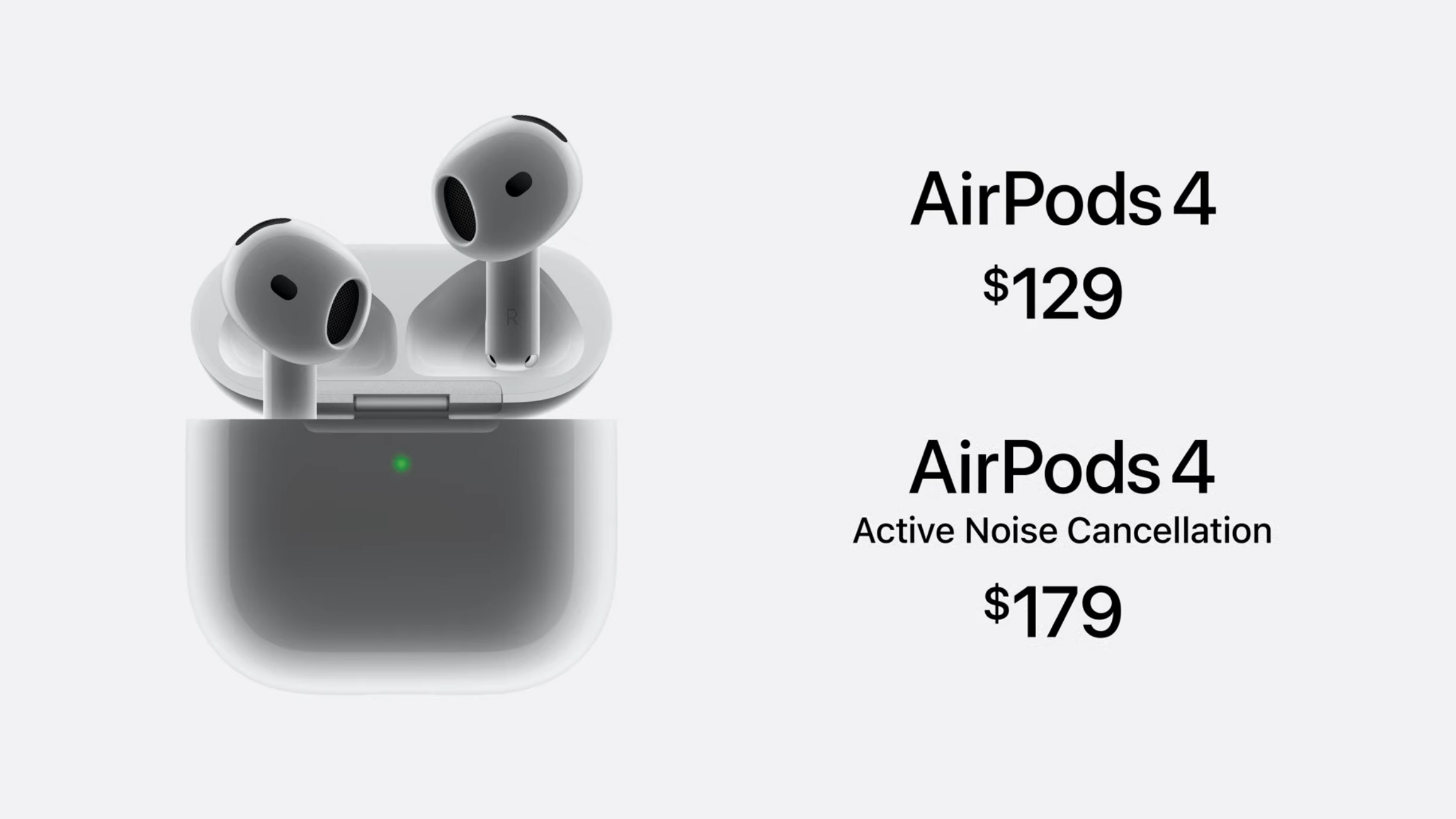
In our review of the AirPods 3, we found their shorter stems and contoured shells more comfortable than previous editions. We’d hoped to see the design refined further for the fourth generation – and that's exactly what has happened. Apple says these are its best-fitting open-ear AirPods yet, and the company has done a bunch of research and testing, to try to facilitate it.
The design is… not a huge departure for Apple. it must be said (the purple colorway Apple once planned isn't here still, in case you wanted that) but Apple has worked extensively on its open-ear sizing, developing over 50 million size mapping charts, and there's an "all new acoustic architecture" to create what Apple's calling its "best open-ear AirPods design ever".
Features wise, the inclusion of Apple's H2 chip means first-ever support for active noise cancellation in non-Pro AirPods, in the step-up set (yes, there are two sets of AirPods 4, a noise-cancelling set and a cheaper, non-ANC pair) plus support for Conversation Awareness, personalised Spatial Audio and wireless charging support in the more premium pair's case – which now also contains a speaker for easier Find My support.
Stamina was one area ripe for improvement in Apple's earbuds, and the Cupertino giant has… well, been a little quiet about the stamina within these new Spatial Audio-supporting (again, in the more premium AirPods 4) headphones, although a 30-hour total was alluded to.
Apple AirPods 4: Sound quality
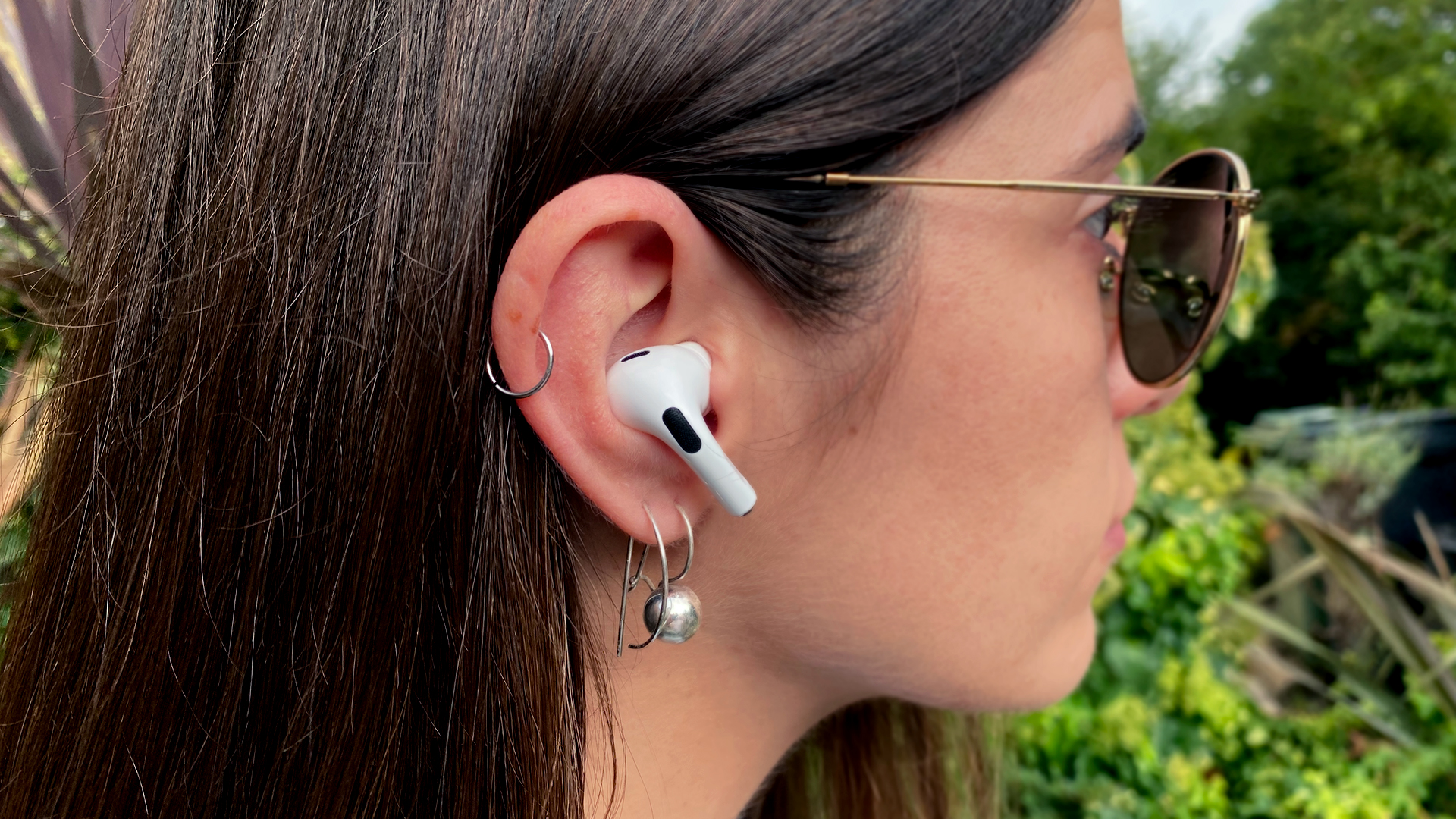
Here, Apple says that in addition to refining the fit, AirPods 4 has a new acoustic architecture – and the company's calling the AirPods 4 the "best sounding AirPods ever", so it's clearly excited about the new design.
Sound quality on the AirPods 3 was already balanced and broadly impressive, but far from the best out there. An unsealed fit means bass is never going to be brilliant, but we’d still hope to hear improvements in the AirPods 4. But the presence of Apple’s H2 chip is likely to add hugely to the sound quality.
The AirPods Pro will continue to be pitched as Apple’s earbuds of choice for audiophiles, but Apple at least needs to keep pace with wireless in-ears that cost less and sound better – such as the Sony WF-C700N. We’ll have to wait and see how they sound for ourselves, but on paper, it's promising.
Apple AirPods 4: Software and performance
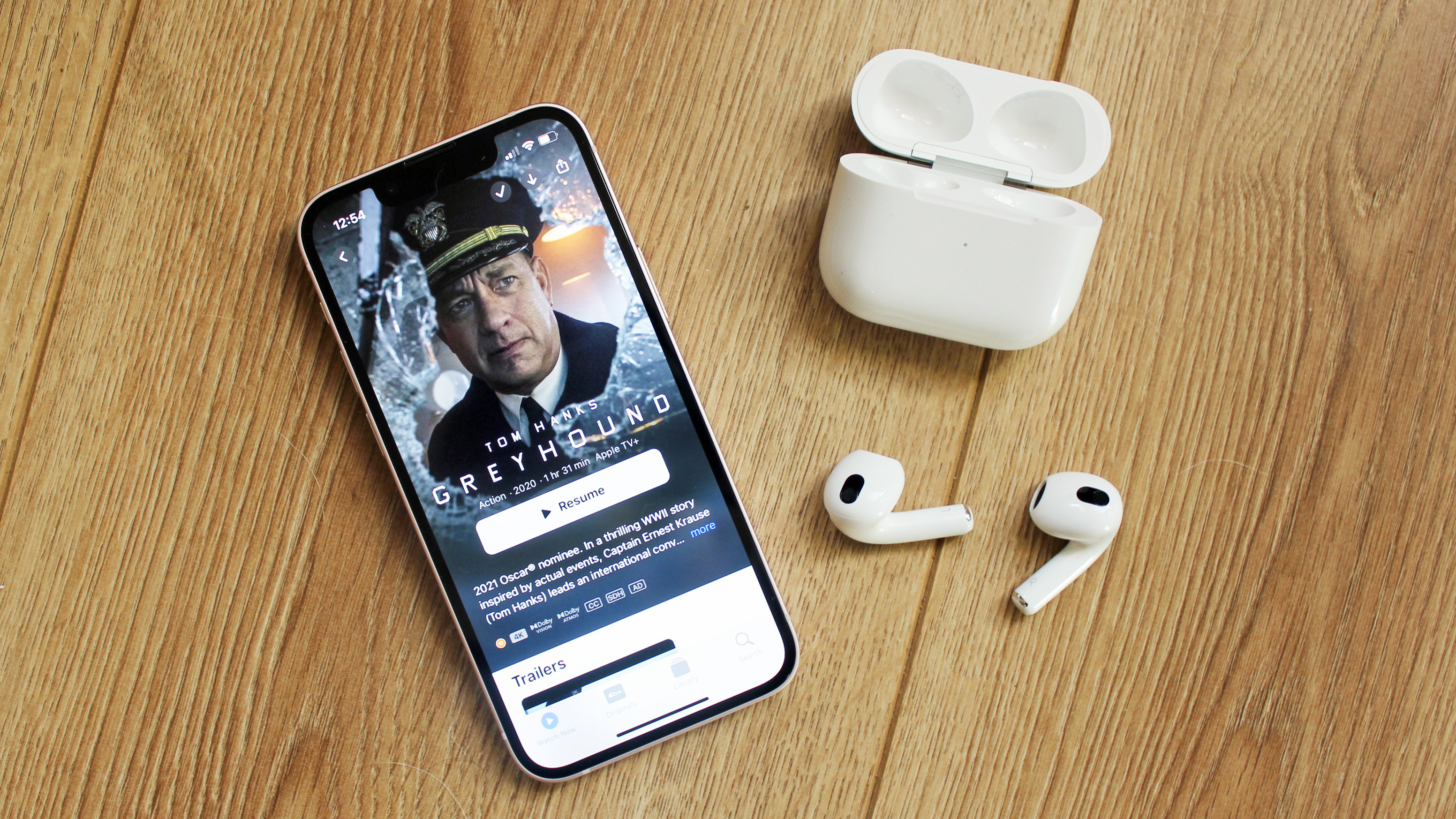
While battery life improved with the AirPods 3, these gains were nullified when Spatial Audio was enabled. We’d hope to see longevity meaningfully improved on the AirPods 4. Again, Apple hasn't been crystal clear on this yet.
Already found on the AirPods Pro 2, the H2 chip is more efficient than the H1 equivalent found in the AirPods 3. And it is here in the AirPods 4. It also supports Bluetooth 5.3 connectivity, which itself is more efficient and more stable than Bluetooth 5.0. The H2 chip’s computational smarts can also contribute to enhanced audio quality, although it’s not clear how much of an impact this would have without ANC.
Adding the H2 chip to the AirPods 4 mirrors the trickle-down approach that Apple takes to its smartphone processors. Assuming that the AirPods Pro 3 are also on the horizon (at some point), quite possibly equipped with a new H3 chip, then the H2 makes sense as an incremental performance upgrade for the AirPods 4 – at least for the full-price version.
Other advancements mooted by Mark Gurman for future non-Pro AirPods models include temperature sensors and support for some kind of hearing data. That has come as a software update to the AirPods Pro 2, but not to these models.







